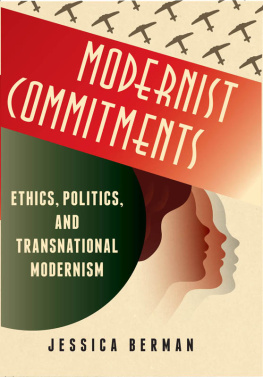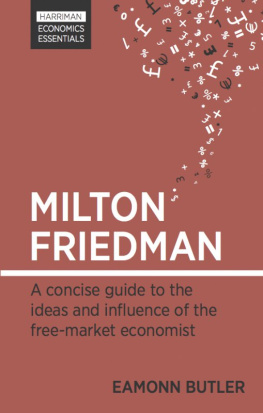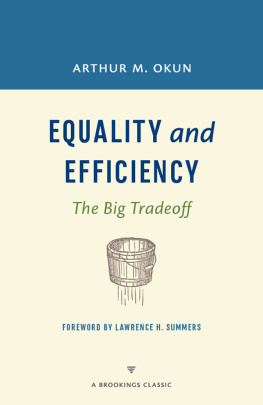Berman - Thinking Like an Economist : How Efficiency Replaced Equality in U.s. Public Policy (9780691226606)
Here you can read online Berman - Thinking Like an Economist : How Efficiency Replaced Equality in U.s. Public Policy (9780691226606) full text of the book (entire story) in english for free. Download pdf and epub, get meaning, cover and reviews about this ebook. year: 2022, publisher: Princeton Univ Pr, genre: Politics. Description of the work, (preface) as well as reviews are available. Best literature library LitArk.com created for fans of good reading and offers a wide selection of genres:
Romance novel
Science fiction
Adventure
Detective
Science
History
Home and family
Prose
Art
Politics
Computer
Non-fiction
Religion
Business
Children
Humor
Choose a favorite category and find really read worthwhile books. Enjoy immersion in the world of imagination, feel the emotions of the characters or learn something new for yourself, make an fascinating discovery.

- Book:Thinking Like an Economist : How Efficiency Replaced Equality in U.s. Public Policy (9780691226606)
- Author:
- Publisher:Princeton Univ Pr
- Genre:
- Year:2022
- Rating:5 / 5
- Favourites:Add to favourites
- Your mark:
- 100
- 1
- 2
- 3
- 4
- 5
Thinking Like an Economist : How Efficiency Replaced Equality in U.s. Public Policy (9780691226606): summary, description and annotation
We offer to read an annotation, description, summary or preface (depends on what the author of the book "Thinking Like an Economist : How Efficiency Replaced Equality in U.s. Public Policy (9780691226606)" wrote himself). If you haven't found the necessary information about the book — write in the comments, we will try to find it.
Thinking Like an Economist : How Efficiency Replaced Equality in U.s. Public Policy (9780691226606) — read online for free the complete book (whole text) full work
Below is the text of the book, divided by pages. System saving the place of the last page read, allows you to conveniently read the book "Thinking Like an Economist : How Efficiency Replaced Equality in U.s. Public Policy (9780691226606)" online for free, without having to search again every time where you left off. Put a bookmark, and you can go to the page where you finished reading at any time.
Font size:
Interval:
Bookmark:

THINKING LIKE AN ECONOMIST
Thinking like an Economist
How Efficiency Replaced Equality in U.S. Public Policy
Elizabeth Popp Berman
PRINCETON UNIVERSITY PRESS
PRINCETON AND OXFORD
Copyright 2022 by Princeton University Press
Princeton University Press is committed to the protection of copyright and the intellectual property our authors entrust to us. Copyright promotes the progress and integrity of knowledge. Thank you for supporting free speech and the global exchange of ideas by purchasing an authorized edition of this book. If you wish to reproduce or distribute any part of it in any form, please obtain permission.
Requests for permission to reproduce material from this work should be sent to
Published by Princeton University Press
41 William Street, Princeton, New Jersey 08540
6 Oxford Street, Woodstock, Oxfordshire OX20 1TR
press.princeton.edu
All Rights Reserved
Library of Congress Cataloging-in-Publication Data
Names: Berman, Elizabeth Popp, 1975 author.
Title: Thinking like an economist : how efficiency replaced equality in U.S. public policy / Elizabeth Popp Berman.
Description: Princeton : Princeton University Press, [2022] | Includes bibliographical references and index.
Identifiers: LCCN 2021042133 (print) | LCCN 2021042134 (ebook) | ISBN 9780691167381 (hardback ; alk. paper) | ISBN 9780691226606 (ebook)
Subjects: LCSH: United StatesEconomic policy. | United StatesSocial policy. | EqualityUnited States. | Policy sciencesUnited States. | United StatesPolitics and government. | BISAC: SOCIAL SCIENCE / Sociology / General | POLITICAL SCIENCE / Public Policy / General
Classification: LCC HC106.84 .B47 2022 (print) | LCC HC106.84 (ebook) | DDC 330.973dc23
LC record available at https://lccn.loc.gov/2021042133
LC ebook record available at https://lccn.loc.gov/2021042134
Version 1.0
British Library Cataloging-in-Publication Data is available
Editorial: Meagan Levinson and Jacqueline Delaney
Production Editorial: Kathleen Cioffi
Jacket Design: Lauren Smith
Production: Erin Suydam
Publicity: James Schneider and Kathryn Stevens
Copyeditor: Jennifer Harris
For Daniel, Nova, and Naomi
THINKING LIKE AN ECONOMIST
In 2008, Barack Hussein Obama was elected to the presidency of the United States on a promise of hope and change. The first Black president, born fifteen years after Bill Clinton and George W. Bush, Obamas election represented for many the turning of a page: the arrival of a new, multiracial America that would be able to transcend its racist past and build a brighter, more inclusive future.
Beyond the symbolic importance of breaking what the New York Times called the last racial barrier, many of Obamas supporters anticipated that he would usher in substantial policy change. After eight years of the George W. Bush presidency, these voters hoped Obama would find a way to ensure that all Americans had healthcare, rein in Wall Street, and finally address the mounting crisis of climate change. Progressive Democrats, in particular, were excited and energized by the results of an election that had once seemed so unlikely.
Obama did oversee the resolution of the 2008 financial crisis and the nations long, slow climb out of the Great Recession. He had some major legislative accomplishments, which included the Affordable Care Act (ACA), the Dodd-Frank financial reforms, and a massive economic stimulus package. Yet even before 2010, many progressives began expressing disappointment with Obamas policy leadership.
What stands out in retrospect about the Obama presidency is its continuity with the recent past. The truly ambitious new policiesones that might have been top-of-mind for Democrats in 1970, or 1935never materialized. This is not because such possibilities were pursued unsuccessfully; they were never even seriously considered. And the policies that were proposed tended to share some characteristics more commonly associated with Republican administrations: a focus on leveraging choice, competition, incentives, and the power of markets in the pursuit of outcomes that would be not just effective, but efficient.
Take healthcare policy. Obamas signal accomplishment in social policy, Obamacare, was modeled after Republican Mitt Romneys 2006 Massachusetts healthcare reform bill. Obamas version combined elements from both Republican and Democratic health reform plans of the early 1990s.
Financial reform offers another example. The Dodd-Frank Act, passed in the aftermath of the 2008 financial crisis, was meant to ensure that banks deemed too big to fail could never again threaten to bring down the entire financial system with them. Yet while the bill introduced new regulatory requirements and created the Consumer Financial Protection Bureau, Dodd-Frank did little to take on the power of the banks.
Or consider policies to address climate change, a core plank of Obamas 2008 campaign. The administration originally supported the Waxman-Markey Bill, a 2009 cap-and-trade bill that would have limited greenhouse gas emissions for the first time, but the proposal died in the Senate. Both the cap-and-trade and regulatory approaches built on an economic framework that sought to use market forces (in the former case) or cost-benefit calculations (in the latter) to achieve efficient policy results. The strategy of simply instructing government to determine safe levels of emissions and requiring firms to meet them, as Democrats might have proposed in the 1970s, was not even discussed.
Obama was, of course, faced with many constraints that shaped both the options he considered and what he could actually accomplish: Republicans in Congress, more conservative members of his own party, the particular scrutiny he received as a Black man in the White House, and, notably, the worst recession in seventy years. The limits on what he was able to realize as president are not solely explained by a failure of imagination. But what is so striking about Obamas time in Washington is not that he sought to achieve fundamental change and failed. It is how constricted the very horizons of possibility seemed to be.
Moments of crisis like 2008 can be moments of political transformation. As Rahm Emanuel, Obamas chief of staff, suggested that year, You never want a serious crisis to go to waste. So why, then, did the Obama administration not produce, or even seek, more fundamental change, despite coming to power during just such a crisis and having, for two full years, control of both the House and the Senate? Why did it remain committed to an incrementalist, modestly ambitious vision of government, even as the country faced unprecedented challenges? And should we expect the same from the Biden administration, which inherited much of Obamas legacy (and many of his advisors), and came to power during a global pandemic, but also at a time of greater mobilization on the political left?
There is no single right answer to this question. The Democratic Partys enduring commitment to a market-friendly, technocratic approach to policy since 1990 has many sources, including the influence of the tech and finance industries within the national Democratic Party, the ever-rightward shift of Republicans, the relative weakness of organized movements on the left, and the depth and complexity of interest-group politics in domains like healthcare and climate policy. Any one of these makes transformative change hard; combined, they can make it feel impossible.
Font size:
Interval:
Bookmark:
Similar books «Thinking Like an Economist : How Efficiency Replaced Equality in U.s. Public Policy (9780691226606)»
Look at similar books to Thinking Like an Economist : How Efficiency Replaced Equality in U.s. Public Policy (9780691226606). We have selected literature similar in name and meaning in the hope of providing readers with more options to find new, interesting, not yet read works.
Discussion, reviews of the book Thinking Like an Economist : How Efficiency Replaced Equality in U.s. Public Policy (9780691226606) and just readers' own opinions. Leave your comments, write what you think about the work, its meaning or the main characters. Specify what exactly you liked and what you didn't like, and why you think so.











